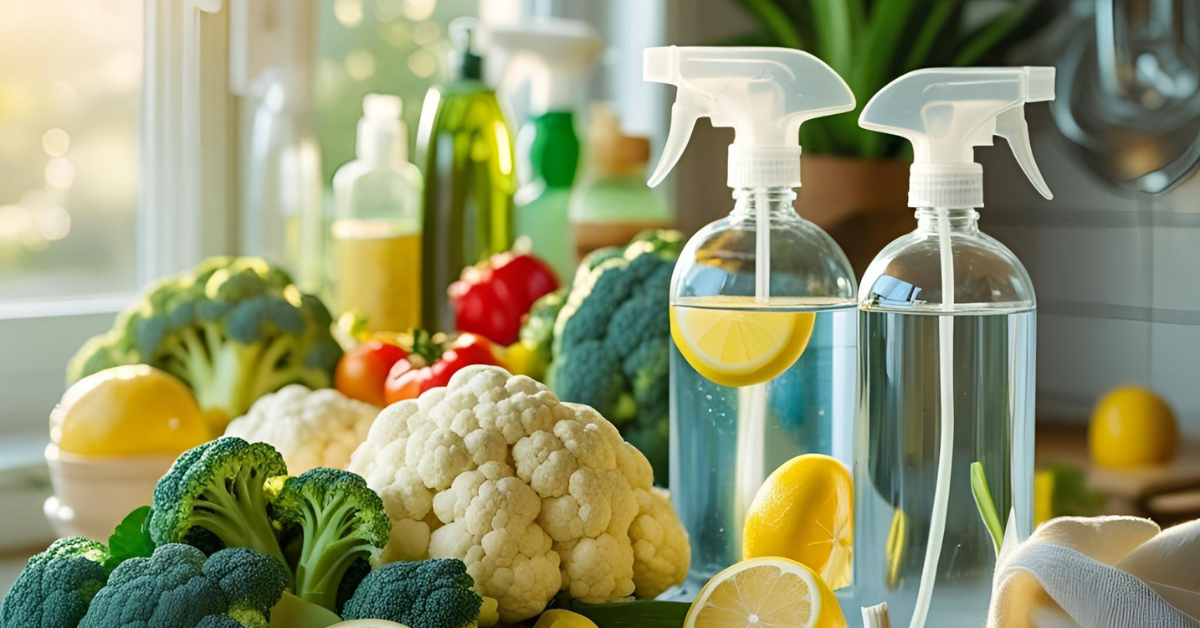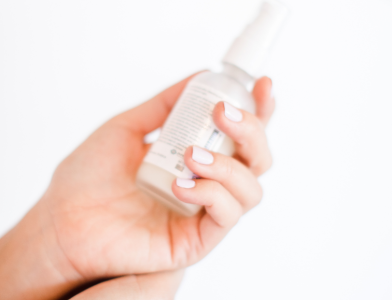Have you ever wondered if those detox teas, expensive juice cleanses, or liver support supplements are actually helping you? Despite the hype, most so-called detox products offer only superficial benefits if not outright harm. True detoxification goes much deeper, and the secret lies within your body’s own resilience system. In this post, we’re diving into real, science-backed strategies to reduce toxin exposure and build lasting health starting today.
Your Built-In Detox System: Why Glutathione Matters
Your body is equipped with an incredible internal detox system that works nonstop to neutralize toxins and protect your cells. At the heart of this process is glutathione, a powerful antioxidant responsible for cleaning up toxins, repairing cellular damage, and keeping your cells operating at peak performance. Without enough glutathione, your liver, kidneys, and immune system weaken, and your cells face stress and premature aging.
The Real Threat: Everyday Toxin Exposure
Modern life exposes us to more toxins than ever – through stress, pollution, processed foods, and even contaminated water. Over time, these factors chip away at your glutathione reserves, increasing your risk for fatigue, lower immunity, and chronic diseases. Contrary to quick-fix detox trends, supporting your internal detox isn’t about one-time cleanses or gimmicky supplements. It’s a daily, ongoing process.
Simple Steps to Build Your Detox Defenses
Building detox resilience is about making small, consistent improvements. Here’s how to strengthen your natural detox system, starting with the choices you make each day:
- Eat sulforaphane-rich vegetables: Broccoli, Brussels sprouts, cauliflower, garlic, and onions supply the sulfur your body needs to produce glutathione. Cruciferous veggies also contain potent detox-activating compounds.
- Include antioxidant-boosting foods: Citrus fruits, bell peppers, Brazil nuts, pumpkin seeds, and oysters provide vitamin C, selenium, and zinc to support your glutathione levels.
- Choose nutrient-dense, unprocessed foods: Each colorful, whole food meal is a chance to rebuild and reinforce your body’s defenses.
Don’t Overlook Water Quality
If your drinking water is contaminated, invisible threats like lead, arsenic, pesticides, and pharmaceutical residues can quietly undermine your efforts. Filtering your water with a high-quality filter, such as reverse osmosis, is one of the easiest ways to reduce your toxin load and support ongoing detoxification. Don’t forget to remineralize your filtered water to maintain optimal health.
👉🏼 Click here for my favorite water filter and mineral drops.
Upgrade Your Home Environment
Personal care, household cleaning, and laundry products are a major source of daily toxin exposure. Many contain parabens, phthalates, formaldehyde releasers, and synthetic fragrances, all of which can drain your glutathione levels and disrupt hormones.
- Swap in fragrance-free, low-toxicity products as you replace existing ones.
- Opt for simple, gentle cleaning supplies: you don’t need harsh chemicals to keep your home safe.
- Remove unnecessary air fresheners and scented products to reduce chemical stress on your body.
Build Sustainable Wellness Habits
True detox isn’t about perfection. Small daily habits, when repeated, create powerful momentum for your body’s recovery and growth:
- Prioritize deep sleep: Your body does its most effective detox and repair work at night. Aim for 7–9 hours of restful sleep.
- Sweat regularly: Physical activity, sauna, or even brisk walking can help your body excrete heavy metals and persistent toxins through sweat.
- Manage stress: Chronic stress depletes your antioxidant reserves. Incorporate daily deep breathing exercises such as 4-7-8 breathing to reset your body and protect your detox pathways.
The Power of Small Choices
Every glass of filtered water, every colorful meal, every low-tox swap, and every mindful breath is an act of self-respect that supports your long-term health. The secret isn’t in fad cleanses, but in cultivating a relationship with your body based on care, awareness, and daily improvement. By boosting your natural detox systems, especially by supporting glutathione, you can slow the aging process, fortify your immune defenses, and reclaim deep, radiant vitality.
Start today. Remember, the best time to protect your health was yesterday. The next best time is right now. Your future self will thank you.
Want more practical support?
References
- Genuis SJ, Birkholz D, Rodushkin I, Beesoon S. Blood, urine, and sweat (BUS) study: monitoring and elimination of bioaccumulated toxic elements. Arch Environ Contam Toxicol. 2011 Aug;61(2):344-57. doi: 10.1007/s00244-010-9611-5. Epub 2010 Nov 6. PMID: 21057782.
- Trivedi MS, Holger D, Bui AT, Craddock TJA, Tartar JL. Short-term sleep deprivation leads to decreased systemic redox metabolites and altered epigenetic status. PLoS One. 2017 Jul 24;12(7):e0181978. doi: 10.1371/journal.pone.0181978. PMID: 28738082; PMCID: PMC5524320.
- Balwierz R, Biernat P, Jasińska-Balwierz A, Siodłak D, Kusakiewicz-Dawid A, Kurek-Górecka A, Olczyk P, Ochędzan-Siodłak W. Potential Carcinogens in Makeup Cosmetics. Int J Environ Res Public Health. 2023 Mar 8;20(6):4780. doi: 10.3390/ijerph20064780. PMID: 36981689; PMCID: PMC10048826.
- Reddam A, McLarnan S, Kupsco A. Environmental Chemical Exposures and Mitochondrial Dysfunction: a Review of Recent Literature. Curr Environ Health Rep. 2022 Dec;9(4):631-649. doi: 10.1007/s40572-022-00371-7. Epub 2022 Jul 28. PMID: 35902457; PMCID: PMC9729331.
- Zhang P, Yang M, Lan J, Huang Y, Zhang J, Huang S, Yang Y, Ru J. Water Quality Degradation Due to Heavy Metal Contamination: Health Impacts and Eco-Friendly Approaches for Heavy Metal Remediation. Toxics. 2023 Sep 30;11(10):828. doi: 10.3390/toxics11100828. PMID: 37888679; PMCID: PMC10611083.
- Ruhee RT, Suzuki K. The Integrative Role of Sulforaphane in Preventing Inflammation, Oxidative Stress and Fatigue: A Review of a Potential Protective Phytochemical. Antioxidants (Basel). 2020 Jun 13;9(6):521. doi: 10.3390/antiox9060521. PMID: 32545803; PMCID: PMC7346151.
- Tahreem A, Rakha A, Rabail R, Nazir A, Socol CT, Maerescu CM, Aadil RM. Fad Diets: Facts and Fiction. Front Nutr. 2022 Jul 5;9:960922. doi: 10.3389/fnut.2022.960922. PMID: 35866077; PMCID: PMC9294402.
- Minich DM, Brown BI. A Review of Dietary (Phyto)Nutrients for Glutathione Support. Nutrients. 2019 Sep 3;11(9):2073. doi: 10.3390/nu11092073. PMID: 31484368; PMCID: PMC6770193.
- Hristov BD. The Role of Glutathione Metabolism in Chronic Illness Development and Its Potential Use as a Novel Therapeutic Target. Cureus. 2022 Sep 28;14(9):e29696. doi: 10.7759/cureus.29696. PMID: 36321012; PMCID: PMC9616098.
- Ketterer B, Coles B, Meyer DJ. The role of glutathione in detoxication. Environ Health Perspect. 1983 Mar;49:59-69. doi: 10.1289/ehp.834959. PMID: 6339228; PMCID: PMC1569131.



